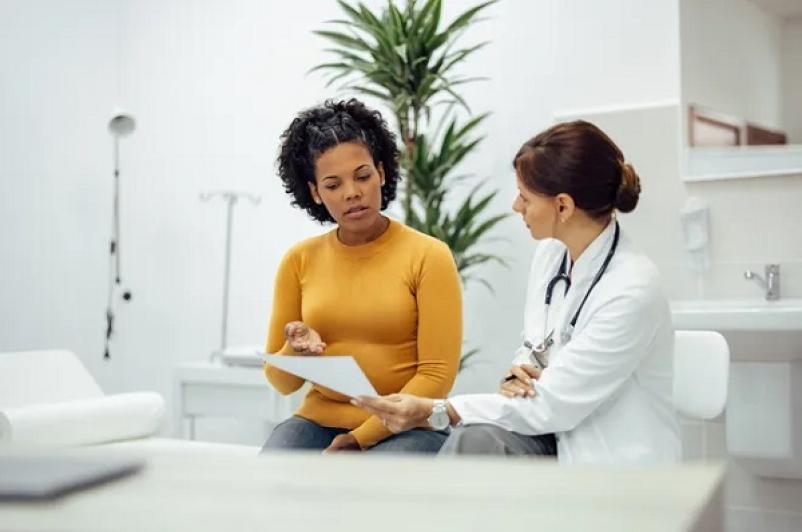
UHS joins with the American Cancer Society in raising awareness about prevention, testing and treatment for cervical cancer. January is Cervical Health Awareness Month, an opportune time to review the screening and testing approaches that are available today.
Screening is having tests to find conditions that may lead to cancers and that can find pre-cancers before they turn into invasive cancers. For cervical cancer, the Pap test, or Pap smear, and the human papillomavirus, or HPV test are specific tests used during screening for this disease. These tests are done in the same way: A healthcare professional uses a special tool to gently scrape or brush the cervix to remove cells for testing. If a pre-cancer is found, it can be treated, keeping it from turning into a cervical cancer.
Understanding cervical testing
The HPV test looks for infection by high-risk types of HPV that are more likely to cause pre-cancers and cancers of the cervix. There are certain HPV tests approved to be a primary HPV test and others approved as part of a co-test. The type you get most often depends on which test is available in your area.
The Pap test is a procedure used to collect cells from the cervix so that they can be looked at closely in a laboratory to find cancer and pre-cancer. It's important to know that most invasive cervical cancers are found in women who have not had regular Pap tests. A Pap test can be done during a pelvic exam, but not all pelvic exams include a Pap test.
Is prevention possible?
The two most important things you can do to prevent cervical cancer are to get the HPV vaccine, if you are eligible, and to be tested regularly according to American Cancer Society guidelines. These can be found in “The American Cancer Society Guidelines for the Prevention and Early Detection of Cervical Cancer.”
The result of the HPV test, along with your past test results, determine your risk of developing cervical cancer. If the test is positive, this could mean more follow-up visits, more tests to look for a pre-cancer or cancer, and sometimes a procedure to treat any pre-cancers that might be found. It is best to talk with your healthcare provider about your screening test results in more detail, to fully understand your risk of developing cervical cancer and the next steps recommended.
Time to take action
Vaccines are available that can help protect children and young adults against certain HPV infections. These vaccines protect against infection with the HPV types most commonly linked to cancer, as well as some types that can cause anal and genital warts. These vaccines work only to prevent HPV infection − they will not treat an infection that is already there. That is why, to be most effective, the HPV vaccines should be given before a person becomes exposed to HPV, such as through sexual activity.
It is important to know that no vaccine provides complete protection against all cancer-causing types of HPV, so routine cervical cancer screening is still needed.
Newly added resource for cancer patients: Road to recovery program
Lack of transportation can be one of the greatest barriers to receiving timely treatment and quality cancer care. Millions of Americans delay or have difficulty getting needed medical care each year due to a lack of available and affordable transportation to treatment.
That is why UHS recently partnered with the American Cancer Society’s Road to Recovery program, which removes barriers to cancer treatment by providing people facing cancer with free transportation to treatment and other medical appointments.
Volunteer drivers donate their time (as little as one hour a week) and the use of their personal vehicles to give people with cancer free rides to treatment.
The program can be truly meaningful in the life of the patient, said Kim Pilarchik, director of UHS Oncology Services.
“Quite simply, having a volunteer driver available to a patient can mean the difference between the person getting to their appointment and not getting there,” she said. “Often, cancer patients’ progress depends on whether they have a ride to their appointment. Many patients have multiple clinical appointments and either don’t have a car or can’t drive. Road to Recovery truly makes a difference.”
Give a ride
If you can be driver, sign up now to become the lifeline enabling a patient to get to their appointments. You’ll get a pick-me-up feeling in return! Training is provided. To volunteer in your community or for more information, call (800) 227-2345 or visit cancer.org/drive.
Get a ride
If you are a patient in need of transportation to a cancer-related medical appointment, call (800) 227-2345 or visit cancer.org/transportation. Trained volunteer drivers will pick you up, take you to your appointment and drop you back at home when you’re finished, at no cost to you.
You can learn much more about the prevention and treatment of cervical cancer, plus how to work with your provider to determine the best screening for you, by visiting the American Cancer Society at www.cancer.org. Learn more about the cancer services UHS offers by clicking here.


